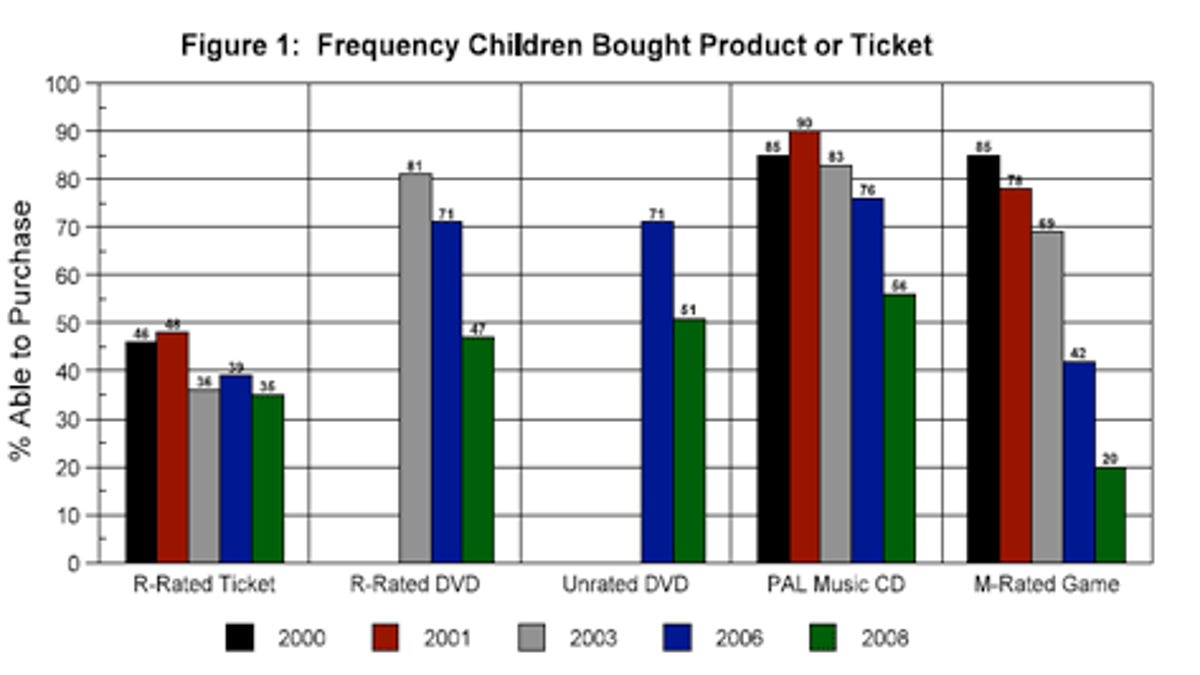Study: Fewer under-17 kids buying 'M'-rated games
National "secret shopper" study finds that retailers are doing a better job of keeping kids away from games and other media aimed at those 17 and above.

Only 20 percent of kids under 17 were able to buy "M"-rated games in the United States this year, according to a government report out Thursday. While parents' groups might like that percentage to be higher, the video game industry is probably pretty happy about the findings.
The Federal Trade Commission report studied kids' success at buying tickets to R-rated movies or purchasing R-rated DVDs, mature CDs, and M-rated games. In every case, the FTC found, the success rate had dropped over every previous year it conducted its study.
But nowhere was the drop sharper than with video games.
According to the study, while 20 percent of under-17 kids were able to buy M-rated games in 2008, the number had been 42 percent in 2006 and between 60 percent and more than 80 percent in previous studies.
A game rated "M" by the Entertainment Software Rating Board (ESRB) is meant only for people aged 17 and over. An "AO"-rated game is meant only for those 18 and over. The ratings have no legal bearing, but most of the video game industry--which sponsors the ESRB--abides by them.
The study surveyed 253 retail stores in the United States. The best results, the FTC said, were at GameStop stores, where only 6 percent of under-17s were able to buy the M-rated games. The worst was Hollywood Video, where 40 percent succeeded.
At Wal-Mart, the number was 18 percent; at Best Buy, 20 percent; Toys 'R Us, 27 percent; Target, 28 percent; Kmart, 31 percent; and Circuit City, 38 percent.
It's no surprise that GameStop led the charts for restricting kids from buying M-rated games, as the retailer generally keeps those games behind the counter. It is, however, a bit surprising that Wal-Mart fared so well.
In response, ESRB president Patricia Vance issued a statement Thursday.
"Video game retailers have clearly stepped up their efforts to enforce their store policies," Vance wrote, "and they deserve recognition for these outstanding results. We commend and applaud retailers for their strong support of the ESRB ratings, and will continue working with them to help ensure that these levels of compliance are sustained if not further increased."
Of course, the study seems to have been conducted before the April 29 release of Rockstar Games' record-setting Grand Theft Auto IV, and I would be willing to bet that the numbers of under-17 kids able to buy that M-rated game is higher than the industry-wide numbers reported by the FTC.
The timing of the report is interesting because of a new bill introduced in Congress Wednesday that would mandate that retailers cannot sell M- or AO-rated games to anyone without identification showing their age.

